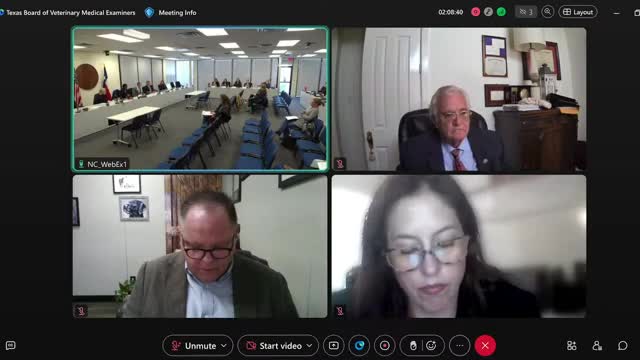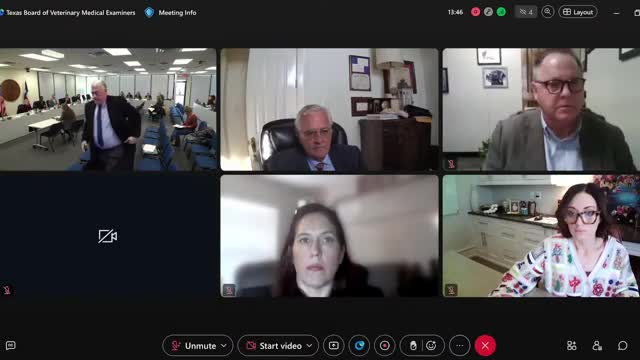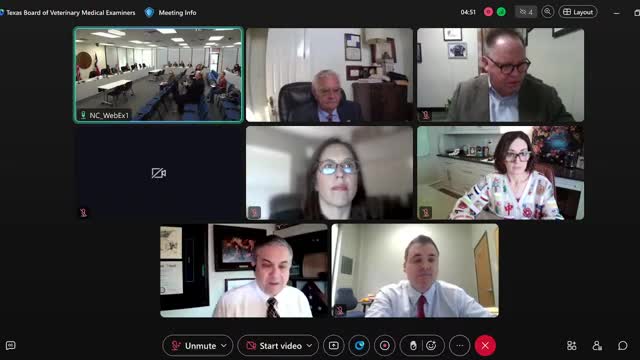Article not found
This article is no longer available. But don't worry—we've gathered other articles that discuss the same topic.

Votes at a glance: Texas Veterinary Board approves minutes, elects officers, adopts licensing rule and several routine orders

Texas board accepts ALJ recommendation denying foreign-educated applicant a license

Board debates ownership, livestock definitions and scope of midlevel and equine dental practice

